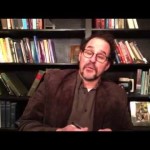We run our website the way we wished the whole internet worked: we provide high quality original content with no ads. We are funded solely by your direct support. Please consider supporting this project.
How do you respond to Zechariah 12:10?
“when they look on the one they have pierced, they shall mourn for him…”
Hundreds of years before Christ was born it was declared that he would be pierced (cf. John 19:24–27). Detailed prophecies such as this one help convince us that Jesus is the Messiah hoped for in the Old Testament. The ministry and crucifixion of Jesus are the centerpieces of world history. Everything else revolves around these. So God takes extraordinary care to ensure that they unfold in just the right way. And to prove that he is behind it all, he announces many of the details of his plan centuries ahead of time, as we have already seen.
Nothing shows forth the sovereignty and wisdom of God as gloriously as does the detailed way Christ’s ministry and crucifixion fulfilled Old Testament prophecies. We compromise the wisdom and sovereignty of God, however, if we reduce such prophecies to “crystal ball” previews of the future. God’s power and wisdom are more amazing if they allow for open-ended free decisions than if God needs to have everything settled ahead of time to accomplish his plans.
To ensure that this or any other prophesied detail of Christ’s life comes to pass, the Lord would have to know that someone at the time of the crucifixion would have freely developed the sort of character that would, in the right circumstances, carry out the prophesied action. But, as we saw was the case of Joseph of Arimathea (see How do you respond to Isaiah 53:9?), God would not have to predetermine who that “someone” would be. At any given moment in history many people undoubtedly have such a character. The Lord need only find one and providentially direct his freely acquired character to act out in accordance with his prophesied end (Prov. 16:9).
Prophecies such as this one do not exalt a special divine ability to foresee an exhaustively settled future. They rather exalt God’s unfathomable wisdom and the remarkable power he has to use it. Most importantly, they demonstrate the truth that Jesus Christ is Lord and that his life, death and resurrection were orchestrated by God for the purpose of redeeming humanity from its sin.
Category: Q&A
Tags: Open Theism, Q&A
Topics: Open Theism, Responding to Objections
Verse: Zechariah 12
Related Reading

Free Will: What about “natural” evil? Was Hurricane Sandy a Free Agent?
What about natural evil? How does free will help to make sense of this? Greg reflects on the origins of sickness, natural disaster, animal suffering and so on. Hope you’re enjoying the series so far. There’s more to come!

Scientific Support for the Open View
If a position is true, every avenue of reflection ought to point in its direction. What follows are two more “pointers” to the view that the future is at least partly open (indefinite, composed of possibilities). I’ll first consider an argument from quantum physics, followed by a pragmatic argument regarding what we ordinarily assume to…

Confronting Divine Determinism
Part of the fallen human condition inclines us to shirk our moral responsibility and accept that everything is predetermined, whether by God, the gods, fate, or blind chance. Various forms of determinism have been prevalent in most primitive religions, in much ancient philosophy, in most forms of Islam and even, most surprisingly, in much traditional…

Does God Change His Mind?
Classical theologians usually argue that texts that attribute change to God describe how he appears to us; they do not depict God as he really is. It looks like God changed his mind, but he really didn’t. Unfortunately for the classical interpretation, there are many texts that do not say, or remotely imply, that it…

Reflecting on Open2013
T. C. Moore has posted some of his reflections from the Open Theism conference. T. C. was one of several people who pulled this conference together and he did a great job. He’s also incredibly smart and very active in the open view community. Also, he’s a young church planter in Boston and I’m sure he’s…

How do you respond to Genesis 45:5; 50:20?
Joseph said to his brothers, “…now do not be distressed, or angry with yourselves, because you sold me here; for God sent me before you to preserve life,” (cf. v. 7). Joseph later says, “Even though you intended to do harm to me, God intended it for good, in order to preserve a numerous people…”…
